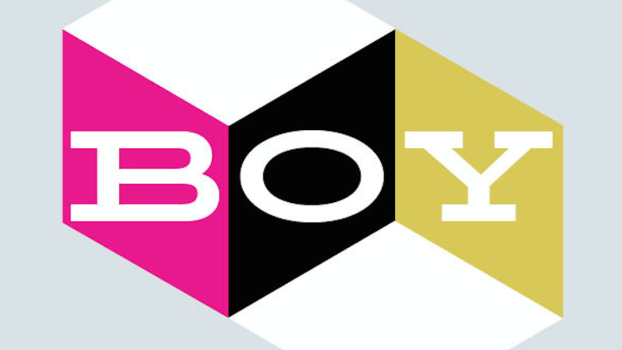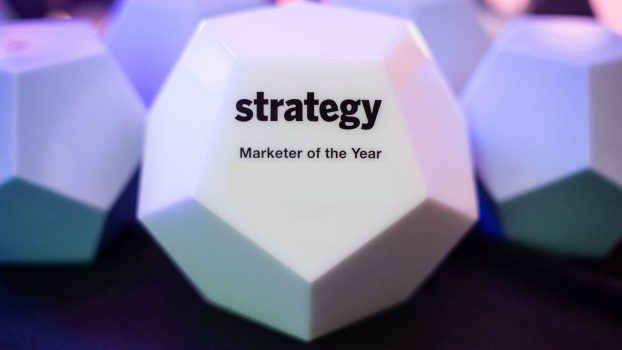Last month, footwear and apparel retailer Foot Locker brought the first of two planned “Power” stores to Canada with the opening of a new 15,000 square-foot location along Robson Street in Vancouver.
A second Toronto store is expected to open within weeks and follows the launch of similar concepts in Detroit, Philadelphia, New York, London, Compton, Liverpool and Hong Kong.
The new stores are designed to foster connections with the local community, says Richard McLeod, former VP of marketing for Foot Locker in North America, who was recently named GM for the Canadian market. In Vancouver, for example, one of the store’s three storeys will serve as a dedicated activation space for events with brand partners and influencers once the COVID-19 pandemic is under control.
The Canadian stores have been in the works for a few years, and while COVID precautions have hampered launch activities, McLeod says activations are being planned for once restrictions are lifted. “We’re primed and ready for when things change. But for now, we’re controlling the experiences as much as possible based on the restrictions that we’ve been given.”
McLeod spoke to strategy about the new store concept and the company’s approach to community-based marketing, as well as its plans for Greenhouse, a partnerships incubator launched last year.
What are you hoping to achieve by bringing the “Power” store concept to Canada?
Our overall corporate vision is to inspire and empower youth culture. So the “Power” stores are going to continue to be an important part of our overall offence. They were created in order to provide us with an opportunity at store level to connect with consumers at a community level – not just from a product standpoint.
Most of the “Power” store concepts have activation spaces. It’s a way for us to connect with artists, DJs, musicians, schools, and use the store as a hub to truly be a key place within the community. And we try to do that at every level. For example, if you look at the people that we hire, we make sure they [represent] the local community. In the Vancouver store, we have store associates from diverse backgrounds who speak various languages, whether it be Cantonese, Mandarin, Korean, Spanish, Punjabi, Vietnamese.
From a product standpoint, we’re looking to connect with local brands and give them a platform through Foot Locker to help expand their own brand using the size and scale that we have.
In the US, you partnered with Nike to bring some of their technology into your stores and offer perks to Nike loyalty members. Are you doing the same in Canada?
We’re planning to. We’re in the initial stages [of planning]. A lot has happened due to COVID, so we’re still in discussions. But being connected to the consumer and being able to drive additional value, whether it be through experiences, whether it be through content or through product is super important.
 We’ve had great success with [Toronto-based logistics and software company] NCX and with connected retail within the U.S. and we hope to continue to bring that to the Canadian market.
We’ve had great success with [Toronto-based logistics and software company] NCX and with connected retail within the U.S. and we hope to continue to bring that to the Canadian market.
How is a community-based approach an effective marketing strategy?
It allows you to be completely connected. For big brands like Foot Locker, it’s super important to have that level of connectivity with the consumer, to be genuine in your approach and to continue to support on a long-term basis. There’s almost no national approach anymore – everything starts from the community.
Your mission is to empower youth culture, and part of that is participating in sneaker culture. How is sneaker culture evolving, and what’s the marketing opportunity there?
Sneaker culture continues to be extremely prevalent. Sneakers are a conversation starter. They allow consumers to connect on so many different levels… Let’s call them the [cultural] igniter. But then it’s about music, it’s about fashion, it’s about art, it’s about togetherness, it’s about community – it encompasses so many things.
How are you able to leverage that as a marketing tool?
Everything starts with the product. COVID or not, people are still looking for that hot launch. For example, we recently [designed six limited-release product collections] through our Collaboraid Platform, working with a number of creatives around their mission of recovery from COVID. We’ve also worked with apparel and footwear designers so we have [their products] in store. We’ve got IVY Park [an activewear brand co-founded by Beyoncé] and Jordan Retro 11’s. Those launches are still a huge driver to bring people in and connect to the brand, whether it be through the stores or whether it be online. I don’t think that will change; it’s become even more heightened over the last year.
Beyond product launches and local activations, have you run any major campaigns in the Canadian market? How do you typically handle that aspect of your marketing mix?
Typically, we have a lot of synergy with the U.S. in terms of broad programs, such as “Discover Your Air,” a program for Air Max products, or “12 Days of Greatness,” a mobile-first, digitally led program that focused around releases with local as well as recognized designers. A lot of the marketing that we do right now is very digitally led, and that will continue into the near future.
But there’s very much a need to localize the programs, whether it be Montreal, Vancouver or Toronto. We put a local spin on some of the bigger programs, whether it be through the collaborators, the DJs or the artists that we work with.
Last year, you launched Greenhouse, a partnerships incubator housed outside of Foot Locker that collaborates with other brands to create apparel and footwear. How does Greenhouse operate, and do you plan on bringing the concept to Canada?
Greenhouse is its own entity in that it works collaboratively with brands that you may not typically see within the Foot Locker ecosystem. It’s a way for us to foster relationships. [Some of the products developed through Greenhouse are available exclusively for purchase on the Greenhouse mobile app.] Depending on the structure of the partnership, we can then carry some of them into our Foot Locker or Champs Sports stores – one example being our latest collaboration with Crocs. That one launched in Greenhouse first in small quantities, and then spilled over into Foot Locker.
As we’ve become more digitally focused, it becomes less about coming to Canada [with Greenhouse]. It’s more about distribution. Certainly certain programs will be featured or distributed in Canada, probably online. So I continue to work with the Greenhouse team on concepts that are relevant for the Canadian market.
[Ed note: In a follow-up, the company clarified that Greenhouse works with brands from markets outside the U.S., including Paris, Amsterdam and Tokyo, and that its focus on Canadian designers will “become greater as our presence and relationships grow in those areas.”]
This interview is part of a series for Strategy C-Suite, a weekly briefing on how Canada’s brand leaders are responding to market challenges and acting on new opportunities. Sign-up here to receive the latest stories.
The interview has been edited for length and clarity.

























